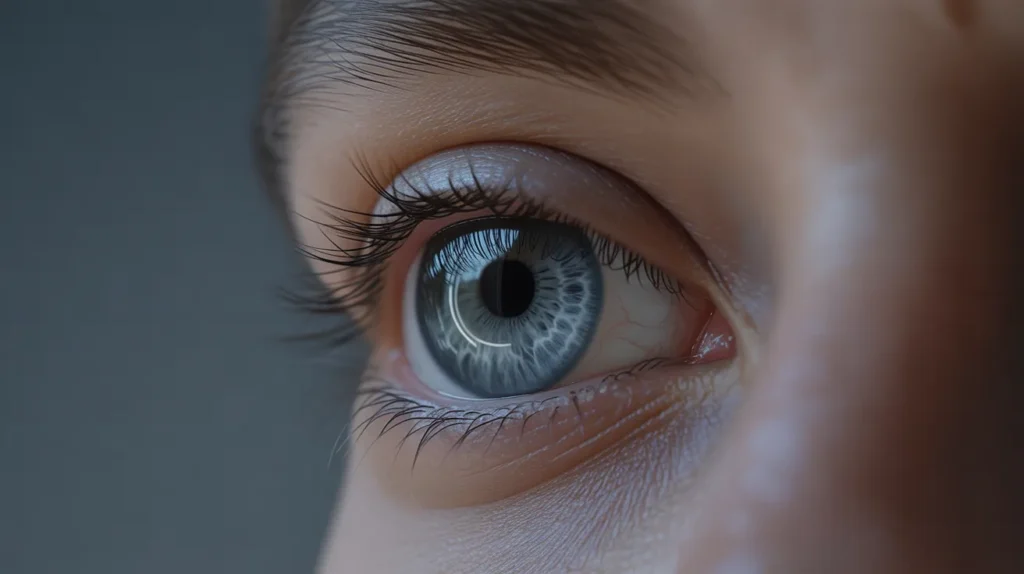EMDR for Insomnia
Introduction
Insomnia affects millions of people worldwide, disrupting sleep cycles and reducing quality of life. Traditional treatments like sleep hygiene and medication help some patients, but many still struggle with racing thoughts, nightmares, and chronic stress. Eye Movement Desensitization and Reprocessing (EMDR), originally developed by Francine Shapiro, is gaining attention in psychology and psychiatry for its potential to improve sleep.
This therapy focuses on memory, emotion, and the nervous system to restore balance in the brain. EMDR can reduce anxiety, fear, and hypervigilance, which are common triggers of insomnia. By targeting the mind’s unresolved experiences, EMDR provides a path toward healthier sleep.

Understanding Insomnia and Its Impact
Insomnia is more than difficulty falling asleep; it includes problems with sleep onset, staying asleep, and waking too early. Patients often report irritability, fatigue, and poor concentration during the day. Long-term sleep deprivation has been linked to mood disorders, memory decline, and even disease such as dementia.
The brain and central nervous system play a crucial role in regulating sleep. Stress, trauma, and substance abuse can disrupt the autonomic nervous system, increasing cortisol and arousal. These changes make it difficult to transition into restorative rapid eye movement sleep, which is critical for memory consolidation, emotional regulation, and overall health.
How EMDR Works in the Brain
EMDR therapy uses bilateral stimulation, often through guided eye movements, to process disturbing memories. This process engages the limbic system, amygdala, and hippocampus, reducing the emotional intensity of traumatic experiences. Over time, patients report less worry, panic, and emotional dysregulation. If you want to learn more about EMDR therapy, visit our website for additional resources.
Research in neuroscience shows EMDR may influence memory consolidation and the sleep cycle. By reprocessing autobiographical memory, the brain can shift from hypervigilance to relaxation. This allows healthier transitions between wakefulness, non-REM stages, and REM dream states. Electroencephalography (EEG) studies suggest EMDR affects brainwave activity in ways similar to natural sleep patterns.
EMDR for Nightmares and Trauma-Related Insomnia
Many people with insomnia experience nightmares that disrupt the sleep cycle. Veterans, first responders, and patients with major depressive disorder or post-traumatic stress often face these disturbing dreams. EMDR helps desensitization of traumatic imagery, reducing the intensity and frequency of nightmares.

By reprocessing traumatic memory, EMDR restores a sense of safety in the mind and body. The patient learns to recall past events without overwhelming arousal. This improves relaxation at night and reduces the likelihood of stress-related awakenings.
Correlation Between EMDR and Sleep Hygiene
Good sleep hygiene includes habits such as consistent bedtimes, reduced stimulant use, and relaxation exercises like progressive muscle relaxation and breathing. While hygiene alone may not solve chronic insomnia, it enhances the effects of therapy. EMDR complements these habits by addressing unresolved emotional triggers that interfere with sleep.
For example, a patient may practice exercise, avoid alcohol, and still struggle due to racing thoughts. EMDR targets the underlying fear and stress stored in the nervous system. This combination provides both behavioral coping strategies and deep psychological healing.
Comparing EMDR with Cognitive Behavioral Therapy for Insomnia (CBT-I)
Cognitive behavioral therapy for insomnia is the most studied non-drug treatment. It focuses on changing behavior, reducing worry, and restructuring beliefs about sleep. CBT-I improves many patients’ sleep onset and maintenance, but some continue to struggle due to unresolved trauma.
EMDR differs by targeting memory and emotion directly. Therapists guide the patient to reprocess disturbing experiences, which lowers hyperarousal in the central nervous system. For individuals with trauma-related insomnia, EMDR may provide benefits beyond CBT-I, especially when nightmares or panic are present.
The Role of Stress, Anxiety, and Emotional Dysregulation
Chronic stress and anxiety increase hypervigilance, keeping the body in a state of alertness. Cortisol levels rise, muscle tone remains elevated, and the mind struggles with relaxation. These physiological states contribute to difficulty falling asleep, racing thoughts, and irritability.
EMDR helps restore the balance between arousal and relaxation by calming the limbic system. Patients report less worry, more stable mood, and improved ability to cope with daily stress. As emotional regulation improves, the nervous system becomes more prepared for rest.
EMDR for Patients with Co-Occurring Conditions
Insomnia often overlaps with other mental health conditions such as major depressive disorder, substance abuse, or addiction. Alcohol, stimulants, and drugs disrupt sleep cycles and worsen insomnia. Patients with chronic pain or grief may also experience persistent wakefulness.
Therapists use EMDR to target both the emotional burden and the unhealthy coping patterns. For example, a veteran with pain and alcohol use may reprocess trauma, reduce cravings, and improve sleep quality simultaneously. This integrated approach supports long-term health and recovery.
Evidence and Research on EMDR for Sleep
Recent research highlights the correlation between EMDR and improved sleep outcomes. Clinical studies show patients experience fewer nightmares, reduced fatigue, and better overall quality of life. Questionnaires measuring sleep onset and sleep deprivation indicate EMDR has significant benefits compared to standard care.
While more randomized controlled trials are needed, current evidence from psychology and psychiatry supports EMDR as a promising option. Therapists and patients continue to share positive experiences, reinforcing its growing role in mental health treatment.
Coping Strategies During EMDR Treatment
Patients undergoing EMDR for insomnia benefit from adding coping strategies to daily life. Progressive muscle relaxation, breathing exercises, and mindfulness help calm the autonomic nervous system. These tools support the brain’s ability to transition into relaxation after therapy sessions.
Therapists may also encourage journaling dreams, practicing hygiene habits, and using relaxation before bedtime. Combining EMDR with these practical strategies enhances sleep outcomes.

How Revival Mental Health Can Help
At Revival Mental Health, we understand the connection between trauma, stress, and sleep disturbances. Our therapists are trained in EMDR, CBT-I, and other evidence-based treatments that support patients struggling with insomnia. We help individuals restore healthy sleep while addressing underlying anxiety, grief, and mental health conditions.
Our treatment center provides a safe environment where patients can work on both emotional healing and behavioral change. Whether insomnia is linked to substance abuse, major depressive disorder, or chronic stress, we offer therapy that improves sleep, mood, and overall health.
Lifestyle Habits to Support Sleep After EMDR
Improving sleep goes beyond therapy. Patients benefit from daily habits such as limiting stimulant intake, practicing exercise, and creating a bedtime routine. These habits work with EMDR to maintain healthy sleep cycles.
Relaxation techniques like progressive muscle relaxation and breathing can reduce nighttime hyperarousal. Journaling before bed may help clear racing thoughts, allowing smoother sleep onset. Over time, these practices support the brain’s natural rhythm and restore balance.
Conclusion
EMDR for insomnia offers hope for those who have struggled with sleep despite practicing good hygiene or using medication. By targeting memory, stress, and the nervous system, EMDR reduces nightmares, racing thoughts, and emotional dysregulation. Patients often report better relaxation, improved sleep cycles, and greater quality of life.
Therapists continue to use EMDR as part of integrated mental health care. With support from research, psychology, and psychiatry, this therapy stands as a powerful tool for restoring healthy sleep.
FAQs
1. Can EMDR be used if insomnia is caused by chronic pain? Yes, EMDR can help patients with pain by reducing emotional stress linked to their experience, which may ease sleep difficulties.
2. How long does it take to see sleep improvements with EMDR? Some patients notice changes after a few sessions, while others need weeks of consistent therapy to restore healthy sleep patterns.
3. Is EMDR safe for patients with dementia or cognitive decline? EMDR may be adapted for patients with dementia, but therapists carefully adjust techniques to match cognition and recall ability.
4. Can EMDR replace sleep medication for insomnia? In some cases, EMDR reduces the need for sleep medication, but decisions should be made with guidance from a mental health professional.





